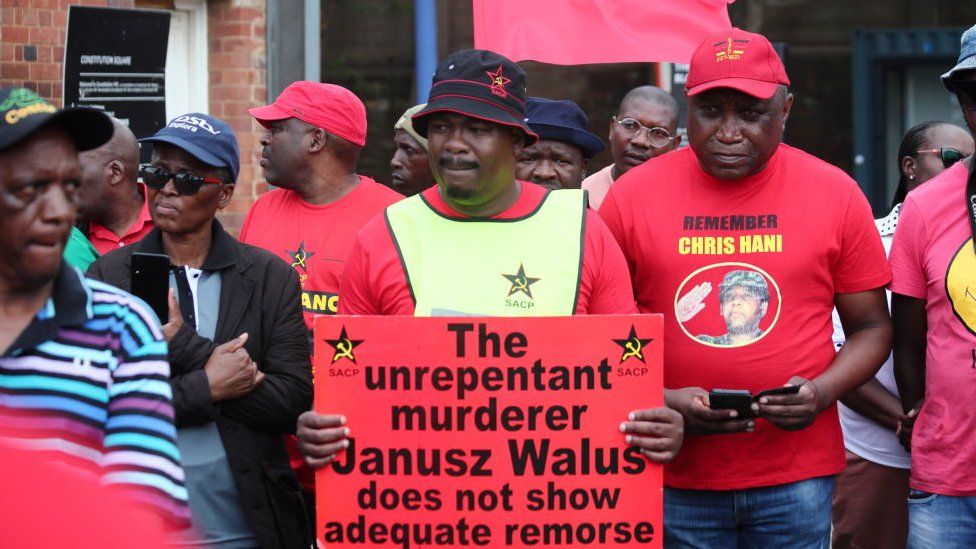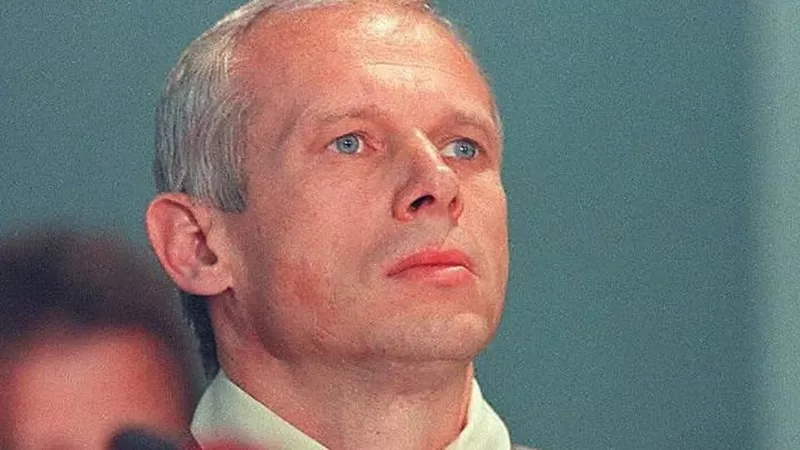The far-right gunman who killed South African anti-apartheid hero Chris Hani has been released on parole a week after he was stabbed in prison.
Janusz Walus, 69, has been discharged under strict conditions for two years, the authorities say.
He shot Hani in 1993 in a failed attempt to derail South Africa’s transition from a white-minority government to democratic rule.
The killing still evokes deep emotions in South Africa.
Hani was regarded as the most popular politician after Nelson Mandela, who went on to become the country’s first black president in 1994.
South Africa’s government and Mr Hani’s widow Limpho have vigorously opposed Walus’ attempts to gain his freedom.
Members of the governing African National Congress (ANC), the South African Communist Party (SACP), which Hani led, and the Congress of South African Trade Unions have also expressed anger over his release.
In a ruling on 21 November, South Africa’s highest court ordered Walus’ release within 10 days, saying the justice minister’s refusal refuse.
The Ministry of Justice and Correctional Services said in a statement on Wednesday that Walus had been released but that he had “been furnished with his parole conditions… If he violates the conditions, he will be returned to a correctional centre”.
Walsu has spend nearly 30 years in prison.
He killed Hani as the politician picked up the newspapers outside his home in April 1993 by shooting him at point-blank range.
As well as leading the SACP, the 50-year-old anti-apartheid fighter was also a senior member of the ANC’s military wing.
Walus was arrested and sentenced to death. The sentence was commuted to life after South Africa abolished the death penalty.

Walus is a Polish immigrant whose South African citizenship was revoked in 2017.
While in prison, he became a symbol for young Polish nationalists and fascists.
Huge banners bearing his portrait were often draped around football stadiums in Poland in 2020 to demand his release.
